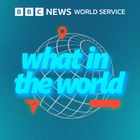
What in the World
Nov 25, 2024
The annual United Nations climate change conference ended on Sunday but not everybody was happy. This year, the main focus was on getting richer countries, who have contributed more to climate change, to pay poorer, developing countries so that they can better deal with the impacts of climate change.
COP29 was held in Baku, Azerbaijan, and the talks were meant to end on Friday. The negotiations ran over into the weekend and a deal for $300 billion was finally agreed on Sunday at 3am.
However, the African Group of Negotiators described the final pledge as "too little, too late" and India said that “the amount that is proposed to be mobilised is abysmally poor. It's a paltry sum.”
BBC climate reporter Georgina Rannard was in Baku and takes us through the final deal. Georgina also speaks with two climate activists who were campaigning at COP29.
Plus, Jordan Dunbar from the BBC’s Climate Question podcast gives us three success stories of how climate change is being tackled around the world.
Instagram: @bbcwhatintheworld WhatsApp: +44 0330 12 33 22 6 Email: [email protected] Presenter: Hannah Gelbart Producers: Emily Horler and Adam Chowdhury Editor: Rosanna La-Falce

